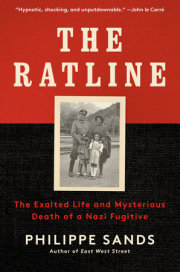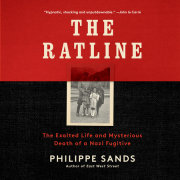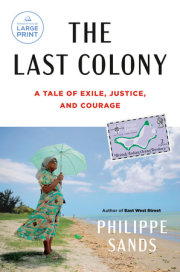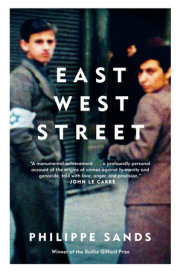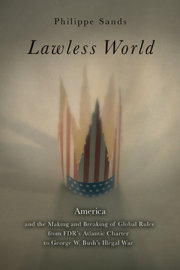Chapter 1
2012, Hagenberg
The beginning was the visit to Horst Wächter, in the spring of 2012, when the fourth child of Otto and Charlotte Wächter first welcomed me to his home. I crossed a disused moat and passed through the large wooden doors of Schloss Hagenberg, to encounter a musty smell, the incense of burning wood that clung to Horst. We drank tea, I met his wife Jacqueline, he told me about his daughter Magdalena, his five brothers and sisters. I learned too about his mother’s papers, although many years would pass before I would see them all.
The visit was an accident. Eighteen months earlier, I travelled to the city of Lviv, in Ukraine, to deliver a lecture on “crimes against humanity” and “genocide.” Ostensibly, I went to visit the law faculty, but the true reason for the journey was a desire to find the house where my grandfather was born. In 1904, Leon Buchholz’s city was known as Lemberg, a regional capital of the Austro-Hungarian empire.
I hoped to fill gaps in Leon’s life story, to discover what happened to his family, about which he maintained a discreet silence. I wanted to learn about his identity, and mine. I found Leon’s house, and discovered that the origins of “genocide” and “crimes against humanity,” legal ideas invented in 1945, could be traced to the city of his birth. The journey caused me to write a book, East West Street, the story of four men: Leon, whose large family from Lemberg and its environs was obliterated in the Holocaust; Hersch Lauterpacht and Rafael Lemkin, also from the city, two jurists who put the terms “crimes against humanity” and “genocide” into the Nuremberg trials and international law; and Hans Frank, Governor General of German-occupied Poland, who arrived in Lemberg in August 1942 and gave a speech which was followed by the extermination of the Jews of the region known as Galicia. The victims of Frank’s actions, for which he was convicted and hanged at Nuremberg, were four million in number. They included the families of Leon, Lauterpacht and Lemkin.
In the course of the research I came across a remarkable book by Niklas Frank, entitled The Father, about Hans Frank. I sought out Niklas, and one day we met, on the terrace of a fine hotel near Hamburg. In the course of our conversation, knowing of my interest in Lemberg, he mentioned Otto Wächter. One of his father’s deputies, Wächter served as Nazi governor in Lemberg from 1942 to 1944, and Niklas knew one of the children, Horst. As I was interested in the city, and as it was during Wächter’s time in Lemberg that Leon’s family perished, Niklas offered to make an introduction. It came with a mild warning: unlike Niklas, who harboured a negative view of his parent—“I am against the death penalty, except in the case of my father,” he said within an hour of meeting—Horst embraced a more positive view of his father. “But you will like him,” Niklas said, with a smile.
Horst responded positively to the introduction. I flew from London to Vienna, rented a car, headed north across the River Danube, past vineyards and hills, to the tiny, ancient village of Hagenberg. “I’ll dance with you in Vienna,” the radio sang, “I’ll bury my soul in a scrapbook.” During the journey I felt a sense of anxiety, as Otto Wächter most likely played a role in the fate of Leon’s relatives in and around Lemberg, all but one of whom perished during his rule. His name seemed to have been airbrushed out of the historical narrative for that period. I gleaned that he was Austrian, a husband and a father, a lawyer and a senior Nazi. In 1934 he was involved in the assassination of the Austrian chancellor, Engelbert Dollfuss. After the Nazis arrived in Austria in March 1938, following the Anschluss, he had a senior position in the new government in Vienna, where my grandparents lived. Later he was appointed governor of Nazi-occupied Kraków, and then, in 1942, governor of Lemberg. After the war, he disappeared off the face of the earth. I wanted to know what happened to him, whether justice was done. For that I would leave no stone unturned. The journey began.
I need not have worried about Horst. He greeted me with enthusiasm, a tall and attractive man, genial in a pink shirt and Birkenstocks, with a twinkle in his eyes, and an embracingly guttural, warm, hesitant, gentle voice. He was delighted I had travelled to the dilapidated baroque castle that was his home, constructed around an internal courtyard, imposing and square, four storeys high, with thick, stone walls and a moat covered in a vibrant undergrowth.
A famous actor just visited, he enthused, with an Italian director. “Two Oscar winners at my castle!” They were filming The Best Offer, a tale of love and crime set across Europe, in Vienna, Trieste, Bolzano and Rome. Little did I know, back then, the relevance of these places to the Wächters.
Accompanied by a cat, we entered the schloss, a solid building that had seen better days. We walked past a workshop, filled with tools and other implements, drying fruit and potatoes and other vegetables, and met the dog. Horst found the building in the 1960s when it hosted a colony of artists. A place of “secret festivities,” he explained. Two decades later he bought it with a modest inheritance left to him after Charlotte’s death.
He shared the basics of his life. Born in Vienna on 14 April 1939, he was named after the “Horst Wessel Song,” a Nazi anthem. His parents chose Arthur as his middle name, in honour of Arthur Seyss-Inquart, his father’s comrade and friend, and Horst’s godfather. He was a lawyer with tortoiseshell spectacles who sat at Adolf Hitler’s top table, who served briefly as chancellor of Austria, after the Anschluss, and governor of Ostmark, as Austria was known in the Third Reich. Shortly after Horst’s birth, Seyss-Inquart was appointed minister without portfolio in Hitler’s cabinet, and soon after that given the task of governing occupied Holland. Hitler’s last will and testament, written in 1945, appointed Seyss-Inquart to be foreign minister of the Reich. Within a few months the lawyer and godfather was caught, tried at Nuremberg and hanged by the neck for the crimes he committed.
I was somewhat surprised, therefore, to see a small black and white photograph of Seyss-Inquart near Horst’s bed. It was tucked into the frame of a photograph of his father Otto, near an oil painting of his grandfather, General Josef Wächter, a military man who served in the imperial army during the First World War. A photo of Charlotte taken in 1942 hung on another wall of the bedroom. Horst slept close to the family.
Horst introduced me to his wife Jacqueline (Ollèn), who was Swedish. They occupied two cosy rooms on the ground floor of the castle, heated with a large wood-burning stove, although their relationship did not seem so tender. He made tea and talked more affectionately about his parents than did Jacqueline. It was immediately apparent that they continued to occupy a special place in his heart. He seemed especially close to his mother, for whom he cared during the last years of her life, a woman who, I would learn, loved him as her favourite. Charlotte’s relationship with Horst’s four sisters was more difficult, and when they grew up three of them moved abroad.
During that first visit, Horst impressed upon me that he hardly knew his father, who was often absent during the war years, in faraway places. With the family in Austria, he might be in Kraków, Lemberg or Italy, or in Berlin. I learned that he was a “lady’s man,” that he disappeared after the war, then died in Rome.
That was all Horst said on that first visit. Somehow, in an indirect way, he explained, the castle was a gift from Otto, a place of refuge and solace. “I dropped out of normality,” he said, when he was in his thirties. He left behind a regular life, because of his father’s story, hoping to find an alternative way.
Normality ended for Horst in 1945, six years old when the war was lost. “I was raised like a young Nazi boy, then from one day to the next everything was gone.” It was a trauma, national and personal, as the regime broke down and life around the family collapsed, a happy childhood punctured. He evoked a memory of his birthday party in April 1945, sitting outside the family home in Thumersbach, looking across Lake Zell. “I was alone and knew I should remember this moment for all my life.” His soft voice cracked as he recalled British and American planes dropping unused bombs into the waters. “The house started to shiver, yes, I remember . . .” His voice trailed off, his eyes moistened, I felt the shiver. He cried, softly, for a brief moment.
Later, Horst escorted me around the castle, a place of many rooms, large and small. We settled in his bedroom, on the first floor, under the gaze of Josef, Otto, Charlotte and godfather Arthur. He brought out Charlotte’s photo albums, we sat together, the images perched on our knees. He alluded to an extensive family archive, many letters between his parents, his mother’s diaries and reminiscences, written for the children, for posterity. I did not see these materials, that day, but they left a memory that intrigued.
I did see a few pages from one diary, from 1942, a tiny volume filled with his mother’s busy writing. I was interested in 1 August, the day Hans Frank visited the Wächters in Lemberg to announce the implementation of the Final Solution across the District of Galicia, a speech that offered a sentence of death for hundreds of thousands of human beings. The diary entry for that day told us that Frank played chess with Charlotte.
We returned to the photographs from the albums, a story of family life, of children and grandparents, of celebrations and holidays in the mountains. The Wächters together, a contented family. There were lakes, and a photo of Otto swimming, the only one I would ever see. “My father loved to swim,” Horst said. Over the page a man with a smile and a chisel carved a swastika into a wall, 1931. A man stood outside a building, greeted by a line of arms raised in Nazi salute. Dr. Goebbels it said under the photograph. Three men in conversation, in a covered yard. Two letters under the photograph, A.H. This was Otto’s angular writing. Adolf Hitler with Heinrich Hoffmann, I would learn, his photographer, and a third man. “Not my father,” Horst said. “Maybe Baldur von Schirach.” This was a reference to the head of the Hitler Youth, also convicted at Nuremberg, whose grandson Ferdinand was a fine writer.
We turned more pages. Vienna, autumn 1938, Otto in his office at the Hofburg Palace, in a distinct SS uniform. Poland, autumn 1939, a burnt-out building, refugees. A crowded street, people dressed against the cold, an old lady in a headscarf, a white armband. A Jew photographed by Charlotte, in the Warsaw ghetto. A photograph of Horst, with three of his four sisters. “March 1943, Lemberg,” Charlotte wrote underneath. A day of bright sun, with long shadows. A note from Horst to Otto. “Dear Papa, I’ve picked you some flowers, kisses, yours, Horsti-Borsti.” He was five back then, in 1944.
We danced around more delicate subjects. He asked about my grandfather, listened in silence to the details. I enquired about his parents and their relationship. “My mother was convinced that my father was right, did the right things.” She never spoke a bad word about him, not in Horst’s presence, but he came to recognise there was a dark side. “Of course, I felt guilty about my father.” He knew about the “horrible things” the regime had done, but it was only later that they intruded into daily life. The period after the war was a time of silence. No one in Austria wanted to talk about the events, not then, not now. He alluded to difficulties with the family, with his nephews and nieces, but no details were offered.
We passed to other matters. Charlotte wanted Horst to be a successful lawyer, like his father, but he chose another life. No more studies, he told Charlotte, he would disappear into the woods. “Bye-bye mother.” She was deeply disappointed that he found his own path. In Vienna, in the early 1970s, he was introduced to a painter, Friedensreich Hundertwasser, and the two men connected. “I knew Hundertwasser would need me, we would get along, because he was a shy person, like me.” Horst worked as the artist’s assistant, sailed his boat, the Regentag—“rainy day”—from Venice to New Zealand, accompanied by his new wife, Jacqueline. During that voyage their only child was born, a daughter, Magdalena. That was 1977.
“Somehow, that Hundertwasser was Jewish was good for my feelings,” Horst continued. “Perhaps also with you, Philippe, because you are Jewish, somehow this is attractive for me.” The artist’s mother feared Horst. “She knew my father’s name, who he was, with her experiences in the war, running around with a Star of David . . .” As he spoke his fingers danced across his arm, where an armband might have been.
Yet, he explained, the historical responsibility of his father was a complex matter. Otto was against the racial theories, didn’t see the Germans as supermen and all others as Untermenschen. “He wanted to do something good, to get things moving, to find a solution to the problems after the first war.”
That was Horst’s view. His father as a decent man, an optimist, who tried to do good but who got caught up in the horrors occasioned by others.
I listened patiently, not wanting to disturb the atmosphere of our first meeting.
A few days later, back in London, I received a message from Horst. “I appreciated your visit to Hagenberg, to learn of the tragic story of your grandfather’s family in Lemberg.” He offered the address of a man from Lemberg whose life he said his father had saved, a Polish Jew. Back then, he added, the “deplorable situation of the Jews was generally accepted as ‘Schicksal.’ ” The word meant fate.
As to his own situation, he said that his solitude had been relieved by my visit. Other members of the family did not wish to talk about the past, and were critical of his endeavours. They did not wish for a spotlight on the life of Otto von Wächter.
I left our first encounter curious and fascinated. I could not help but like Horst, gentle and open, seemingly with nothing to hide. He was a son who wanted to find the good in his father. At the same time, he was unwilling to countenance the idea that Otto Wächter bore any real responsibility for terrible events that occurred on the territory he ruled. I wanted to know more about his parents. Details matter.
Copyright © 2021 by Philippe Sands. All rights reserved. No part of this excerpt may be reproduced or reprinted without permission in writing from the publisher.



